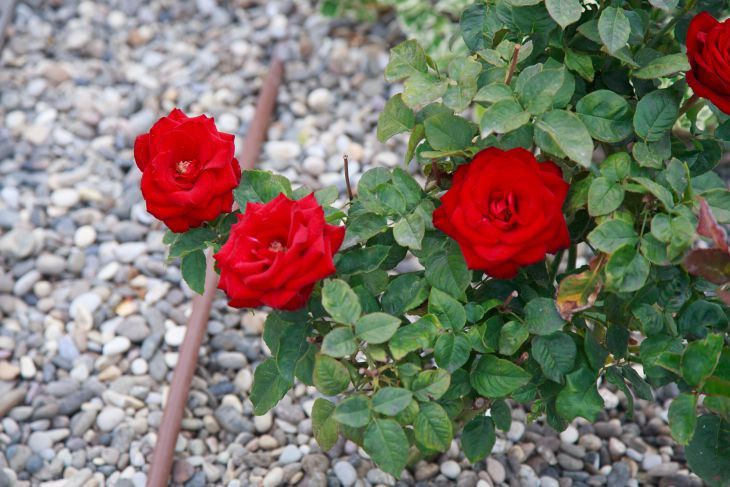Roses bloom in July. This month requires special attention to the queen of flowers.
Proper care in midsummer will not only prolong flowering, but also prepare the plants for the next season.
Every gardener dreams of a lush rose garden.
Watering and humidity
In hot July, roses require regular and abundant watering. It is important to monitor the soil moisture, not allowing it to dry out.
The optimal regime is deep watering once a week, especially during dry periods.

Morning or evening hours are best for this procedure. Mulching the tree trunks will help retain moisture and protect the roots from overheating.
Fertilizer for lush flowering
Roses need additional nutrition during the period of active flowering. Phosphorus-potassium fertilizers promote the formation of strong buds and bright flowers.
You can use both organic and mineral fertilizers. It is important to follow the dosage indicated on the package so as not to harm the plants.
Pruning and shaping the bush
Regular removal of faded buds stimulates the formation of new flower stalks.
This procedure not only improves the appearance of the rose garden, but also prolongs the flowering period. When pruning, you should leave a few leaves under the cut for better recovery of the plant.
Protection from pests and diseases
The July heat creates favorable conditions for the reproduction of pests and the development of fungal diseases. Regular inspection of the bushes will help to notice the problem in time.
Preventive treatments with biological preparations or a weak soap solution will help prevent the appearance of aphids and spider mites.
Sun protection
Despite roses' love of sunlight, on particularly hot days the leaves can get burned.
To protect delicate varieties, you can use temporary shading structures or special sprays that create a thin protective film on the leaves.
Proper soil cultivation
Loosening the top layer of soil improves air access to the roots and prevents crust formation.
This procedure should be carried out carefully so as not to damage the superficial root system of roses. Combining loosening with weeding will help get rid of weeds that compete with roses for nutrients.
Preparing for the next season
July care affects not only the current condition of roses, but also their preparation for winter.
Proper nutrition and care during this period contribute to the accumulation of nutrients in the roots and stems, which increases the chances of plants to successfully survive the winter and bloom profusely next year.








